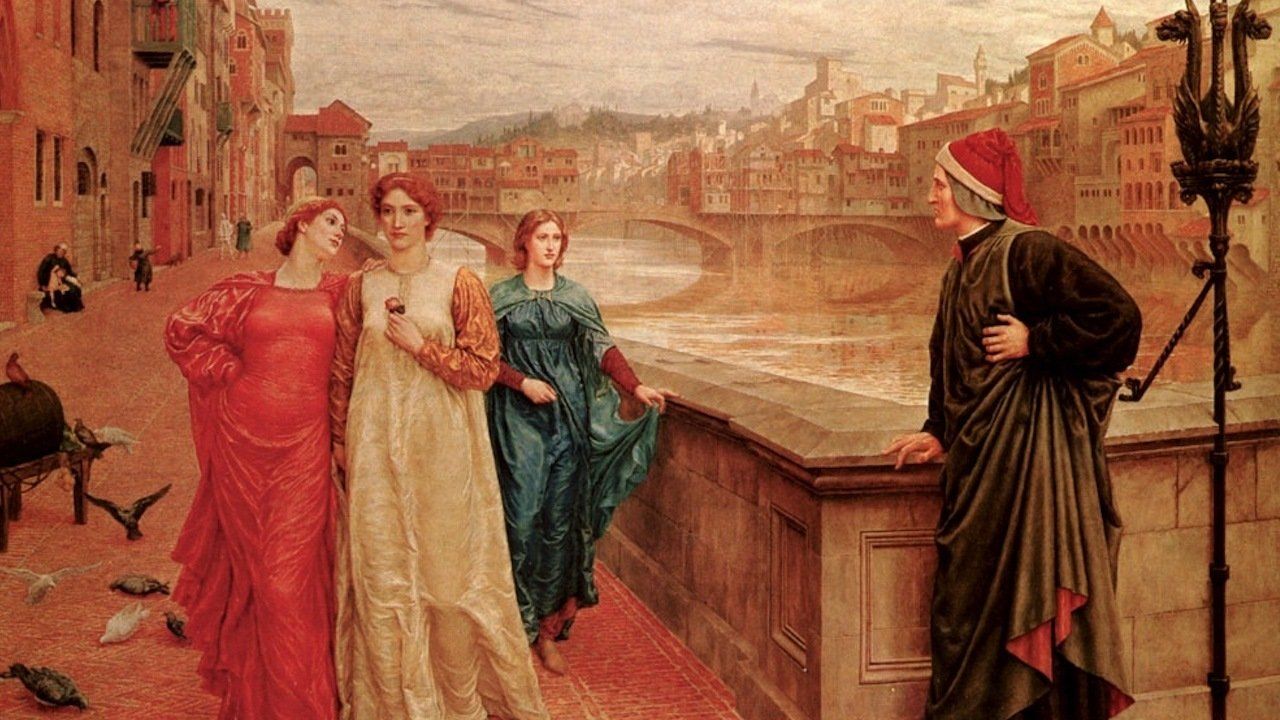Too Little Romance: Making the Ordinary Extraordinary
by David Fagerberg
Feast of St Nicholas Cabasilas
Anno Domini 2015, June 20

THE INAUGURAL Inklings Festival is using Chesterton’s famous title of chapter 4 of Orthodoxy to enter into both the Narnian world of Lewis and the Middle Earth of Tolkien. What is the connection? How can these be mixed together, a mulligan’s stew of Chesterton and Inklings?
First of all, there is the pen. And the pipe. And the pint.
But I hope to suggest a fourth connection.
Tolkien recalls Lewis saying to him one day (over a pipe and a pint, I don’t doubt) “Tollers, there is too little of what we really like in stories. I am afraid we shall have to write some ourselves.” What is this thing, of which there is too little? Tolkien called it the mythopoeic, and he was not wrong. But there could be a simpler word, one explored by two other Inklings, and recognized by Chesterton. There is too little Romance.
We certainly don’t mean the version of Romance offered by Hollywood and cheap paperbacks. Lewis and Charles Williams spent some time defining exactly what they meant. Williams got the ball rolling when he reflected upon the figure of Beatrice in Dante. She created a desire in him that drew him through his journey. That experience led Williams to write a collection of essays under the title “Romantic Theology.” (As Mystical theology is applied to mystical experiences, and Dogmatic theology is applied to dogmas, so Romantic theology is theology as applied to romantic experiences.) Williams admits that “chief among these is sexual love . . . but that there are other human experiences of this same far-reaching nature is undeniable—nature and friendship are perhaps the chief” (Outlines of Romantic Theology).
Interpreters of Williams have summarized this Romance as a “strangeness flowering from the commonplace;” or “making the ordinary extraordinary.” Williams himself says it “defines an attitude; a manner of receiving experience” (The Figure of Beatrice).
Why, it’s almost like living in Efland. Can we describe Chesterton’s whole enterprise any more accurately than saying he makes the ordinary extraordinary? From his earliest essays, Tremendous Trifles, he has tried to make us Peter the pygmy, instead of Paul the giant, because we would have endless fascination with our own front yard if we became “ocular athletes” who trained our eyes on the startling facts that run across the landscape. In Orthodoxy he says the “ordinary man has always been sane because the ordinary man has always been a mystic.... He has always had one foot in earth and the other in fairyland.” And then he invites us into Elfland.
Finally, Lewis puts a cherry on the top. His idea of romance, as described in The Pilgrim’s Regress and explained in its preface, is a sense of intense longing. But it is longing distinguished from other kinds by two characteristics.
First, “the mere wanting is felt to be somehow a delight.” Other desires are pleasures only if we know they are going to be fulfilled; this kind of desire, that he calls romantic, continues to be prized even when there is no hope of possible satisfaction. Second, this romantic longing has a special object. Inexperienced people think they know what they are desiring, but Lewis believes they too often mistake the ectype for the archetype. As John, the pilgrim who is regressing, confesses, “If it is what I wanted, why am I so disappointed when I get it?”
Gilbert’s brother, Cecil, provides a definition of romance in his biography of his brother. First he reveals that Gilbert carried a walking stick with a sword inside, even though “both Battersea and Fleet Street are, I believe, adequately policed,” and then he tells the reason why. “He does it because he is really romantic, the essence of romance being a sense of the unexplored possibilities of life. . . . Fighting was noble and romantic, but only if you fought against odds.”
Has this not given away the plot line of The Lord of the Rings?
David W. Fagerberg is associate professor of liturgical studies in the Department of Theology at the University of Notre Dame, and director of the Notre Dame Center for Liturgy. His area of study is liturgical theology, which he explores in his book Theologia Prima: What Is Liturgical Theology? His book, On Liturgical Asceticism examines how liturgy, theology, and asceticism interrelate. His interests also include sacramental theology, Eastern Orthodoxy, linguistic philosophy, scholasticism, G. K. Chesterton and C. S. Lewis.
Contribute to Cultural Renewal by Sharing on Your Preferred Platform
In an isolating secularized culture where the Church's voice is muffled through her many divisions, Christians need all the help they can get to strengthen their faith in God and love toward their neighbor. Eighth Day Institute offers hope to all Christians through our adherence to the Nicene faith, our ecumenical dialogues of love and truth, and our many events and publications to strengthen faith, grow in wisdom, and foster Christian friendships of love. Will you join us in our efforts to renew soul & city? Donate today and join the community of Eighth Day Members who are working together to renew culture through faith & learning.









